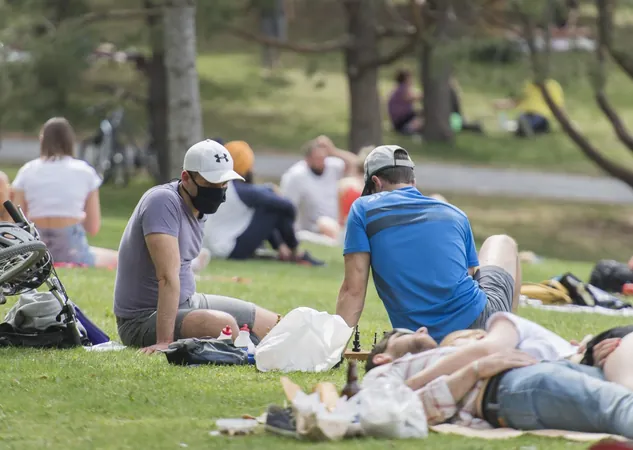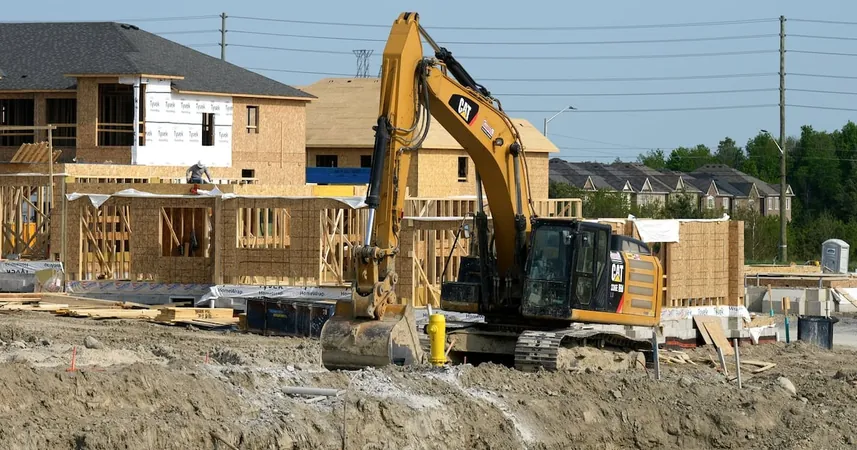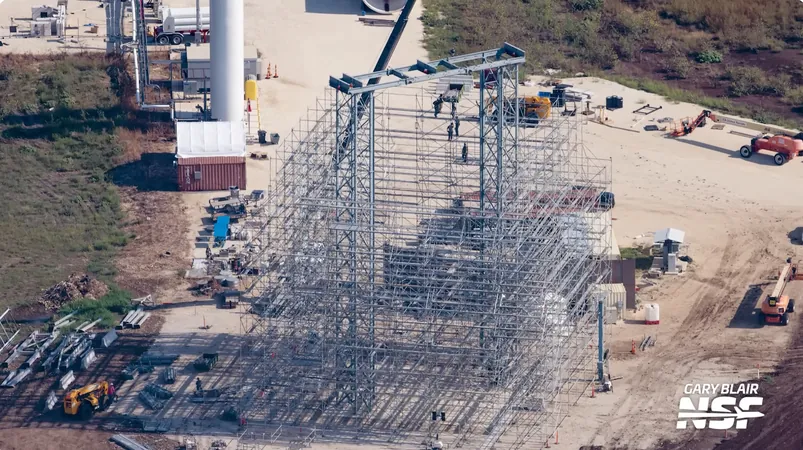
Green Spaces: The Pandemic's Hidden Protector Against Depression!
2025-08-21
Author: Jacob
In a groundbreaking study, researchers have uncovered a powerful ally for mental health during the turbulent early days of the COVID-19 pandemic: urban green spaces. A new report reveals that Canadians living in greener neighborhoods were significantly less likely to suffer from depression as lockdowns took hold.
Published in the esteemed journal PLOS One, the research highlights that access to lush parks and greenery acted as a shield against the emotional toll of the crisis, especially for individuals who weren’t already grappling with depression. Those living amidst nature’s embrace stood a 19% better chance of maintaining their mental well-being compared to their counterparts in urban areas with scarce greenery.
Nature as a Mental Health Lifeline
The findings suggest that green spaces offer a vital retreat from the stressors of financial strain and the isolation of lockdowns, providing restorative qualities essential for mental health thus enhancing overall community resilience. This protective effect was particularly pronounced among those with mobility challenges and lower incomes, emphasizing the need for equitable access to green areas.
A Study Like No Other
This notable research is believed to be the first of its kind to evaluate shifts in mental health linked to residential greenery during the pandemic. Drawing insights from over 13,000 participants aged 50 and older who took part in Canada’s Longitudinal Study on Aging, researchers documented a startling rise in the prevalence of depression: from 11% pre-pandemic to a staggering 22% by late 2020.
Reimagining Urban Planning for Better Mental Health
Lead researcher Paul Villeneuve, a professor at Carleton University, urges city planners and mental health policymakers to prioritize green spaces in urban designs. Such initiatives could mitigate the mental health crisis seen during these turbulent times and provide ongoing benefits in future urban environments.
The Critical Role of Local Nature
Interestingly, the vegetation index used in the study did not differentiate types of greenery or its locations, whether it's a sprawling park or a small backyard. Future research could explore which specific green environments yield the most significant mental health benefits, especially since many people likely sought solace closer to home during lockdowns.
As the world emerges from the pandemic, this pivotal study shines a new light on the importance of integrating natural spaces into our urban landscapes. Providing access to refreshing green areas isn't just a luxury—it's a necessity for safeguarding mental health in times of crisis!









 Brasil (PT)
Brasil (PT)
 Canada (EN)
Canada (EN)
 Chile (ES)
Chile (ES)
 Česko (CS)
Česko (CS)
 대한민국 (KO)
대한민국 (KO)
 España (ES)
España (ES)
 France (FR)
France (FR)
 Hong Kong (EN)
Hong Kong (EN)
 Italia (IT)
Italia (IT)
 日本 (JA)
日本 (JA)
 Magyarország (HU)
Magyarország (HU)
 Norge (NO)
Norge (NO)
 Polska (PL)
Polska (PL)
 Schweiz (DE)
Schweiz (DE)
 Singapore (EN)
Singapore (EN)
 Sverige (SV)
Sverige (SV)
 Suomi (FI)
Suomi (FI)
 Türkiye (TR)
Türkiye (TR)
 الإمارات العربية المتحدة (AR)
الإمارات العربية المتحدة (AR)